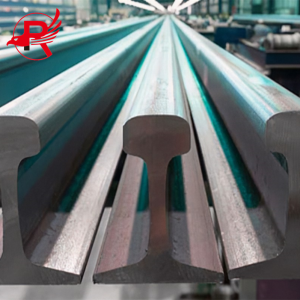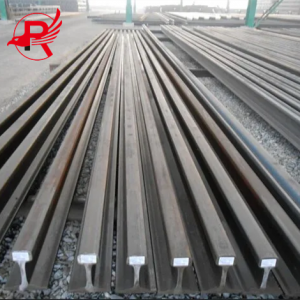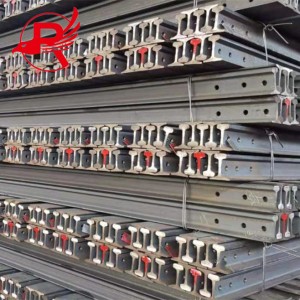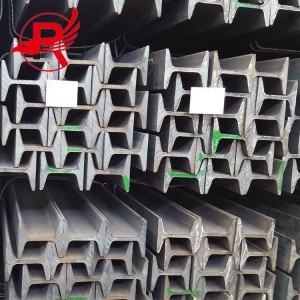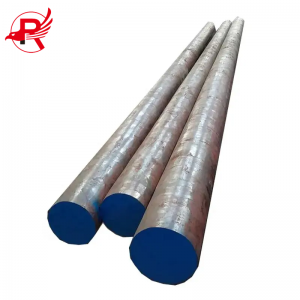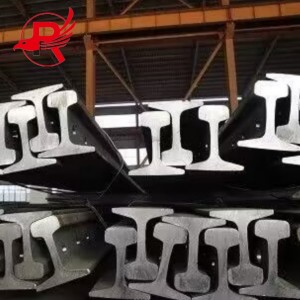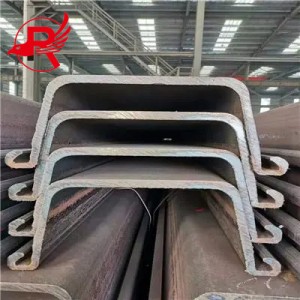Terene ea Seporo e Boima ea GB ea Terene ea Tšepe e Tloaelehileng Lisebelisoa tsa Terene ea Seporo e Boima Terene ea Tšepe ea 43kg
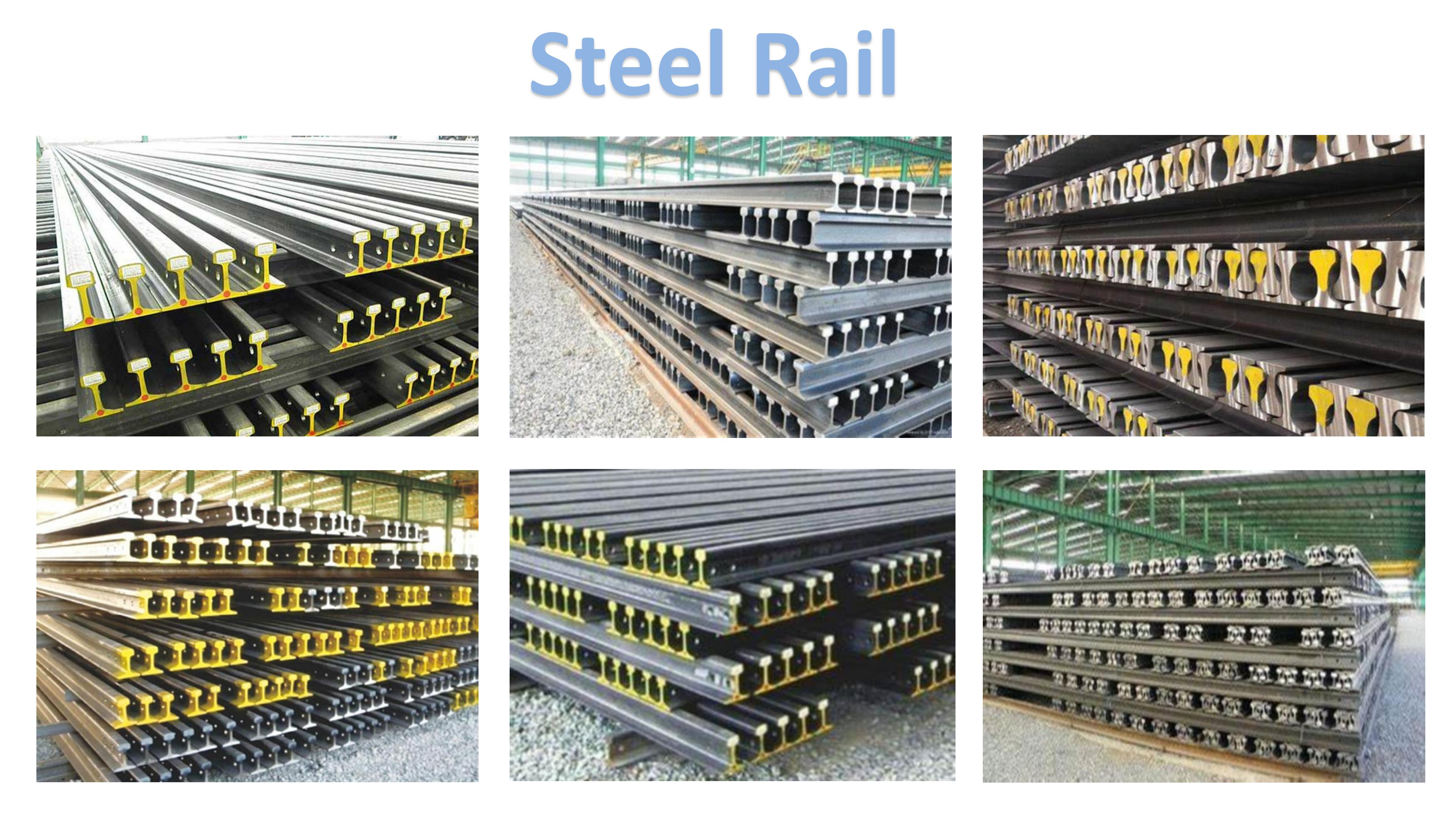
Nts'etsopele ealireile tsa tšepee ka salwa morao ho tloha mathoasong a lekholo la bo19 la lilemo. Pele ho sebelisoa tšepe, literene li ne li hahuoa ka literene tsa tšepe e entsoeng ka tšepe. Leha ho le joalo, literene tsena li ne li atisa ho petsoha le ho robeha tlas'a meroalo e boima, e leng se neng se fokotsa bokhoni le polokeho ea lipalangoang tsa literene.
Ho kenngwa ha literene tsa tšepe ho ile ha fetola dipalangwang tsa terene. Literene tsa tšepe li ile tsa khona ho mamella meroalo e boima le lebelo le phahameng, e leng se ileng sa lebisa ho eketseheng ha bokgoni le bokgoni ditsamaisong tsa terene. Ka ho tšoarella ha literene tsa tšepe, ditjeo tsa tlhokomelo le nako ya ho se sebetse di ile tsa fokotseha haholo, e leng se ileng sa dumella tshebetso e tshepahalang le e tswelang pele ya terene.
Ho tloha ha ho hlahiswaseporo sa tšepe, ho bile le tsoelo-pele e tsoelang pele mekhoeng ea tlhahiso ea tšepe le moralo oa literene. Litšepe tse kopantsoeng tse nang le thepa e itseng, tse kang ho hanyetsa ho tsofala haholo le ho hanyetsa ho bola, li ntlafalitsoe ho fihlela litlhoko tsa lipalangoang tsa sejoale-joale tsa literene.
Mokhoa oa Tlhahiso ea Sehlahisoa
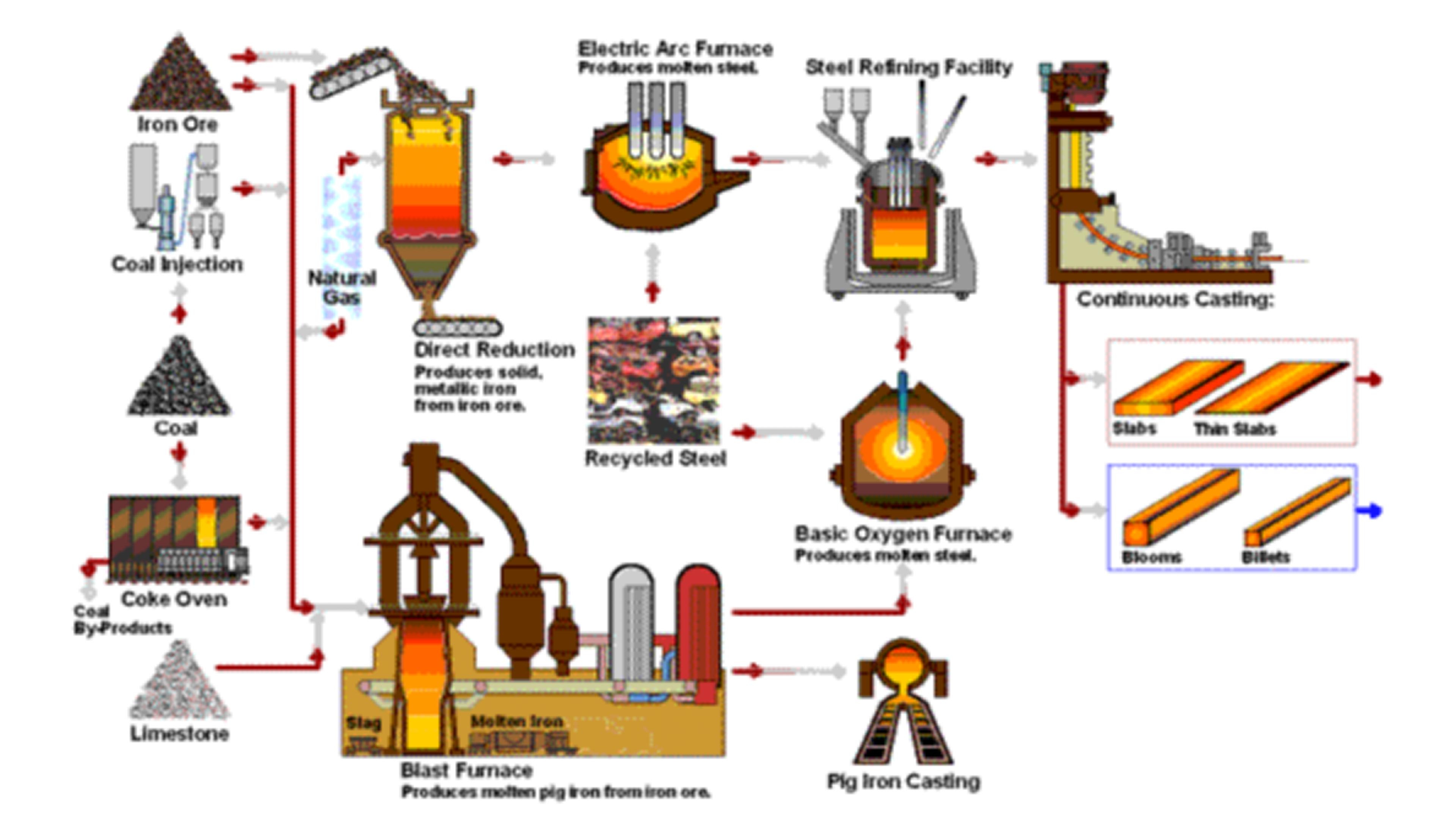
BOHOLO BA SEHLAHISOA
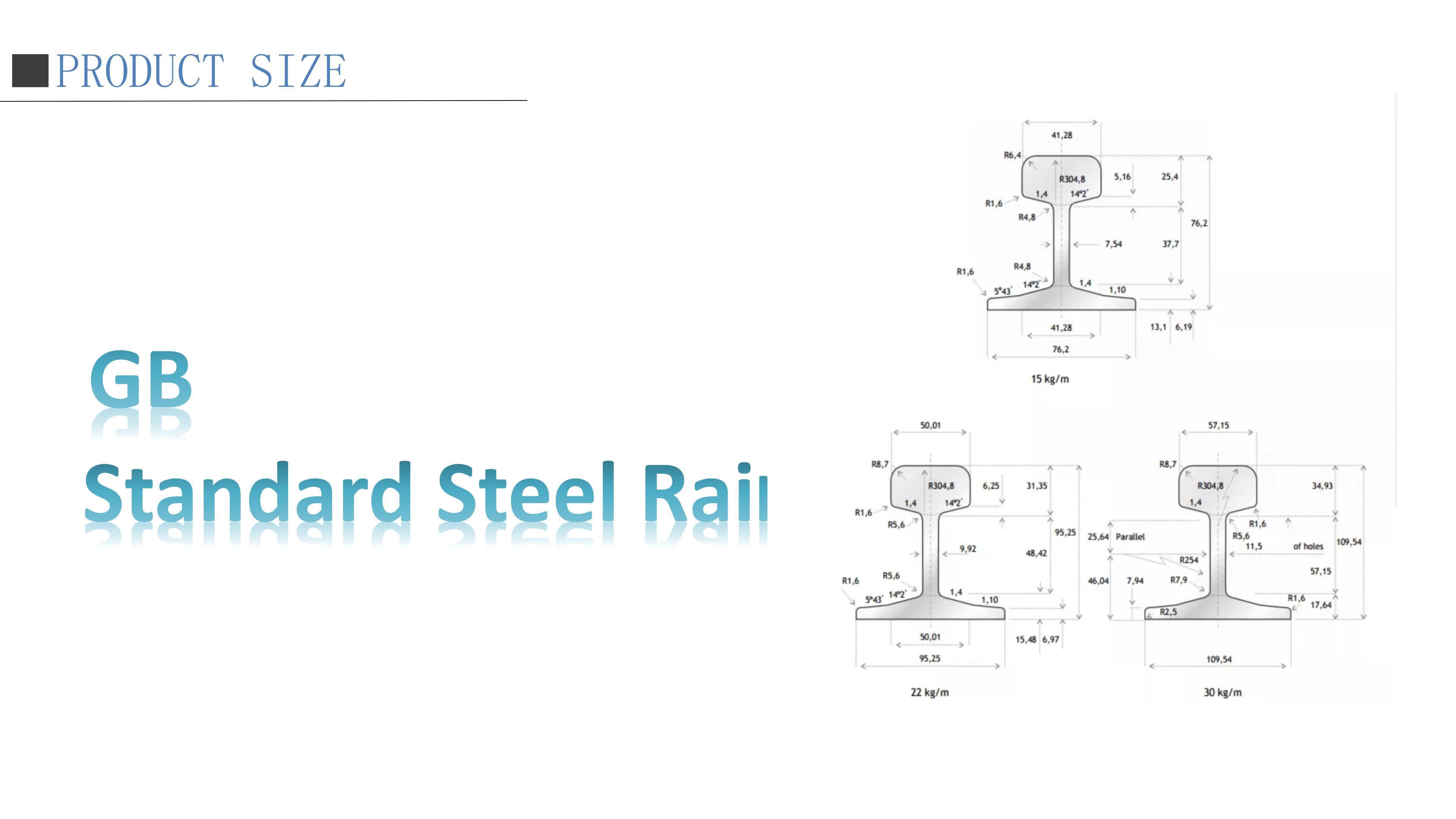
| Lebitso la Sehlahisoa: | Terene ea Tšepe e Tloaelehileng ea GB | |||
| Mofuta: | Terene e Boima, Terene ea Crane, Terene e Bobebe | |||
| Boitsebiso/Tlhaloso: | ||||
| Terene e bobebe: | Mohlala/Thepa: | Q235, 55Q ; | Tlhaloso: | 30kg/m,24kg/m,22kg/m,18kg/m,15kg/m,12 kg/m,8 kg/m. |
| Terene e Boima: | Mohlala/Thepa: | 45MN, 71MN; | Tlhaloso: | 50kg/m,43kg/m,38kg/m,33kg/m. |
| Terene ea Crane: | Mohlala/Thepa: | U71MN; | Tlhaloso: | QU70 kg /m ,QU80 kg /m ,QU100kg /m ,QU120 kg /m . |
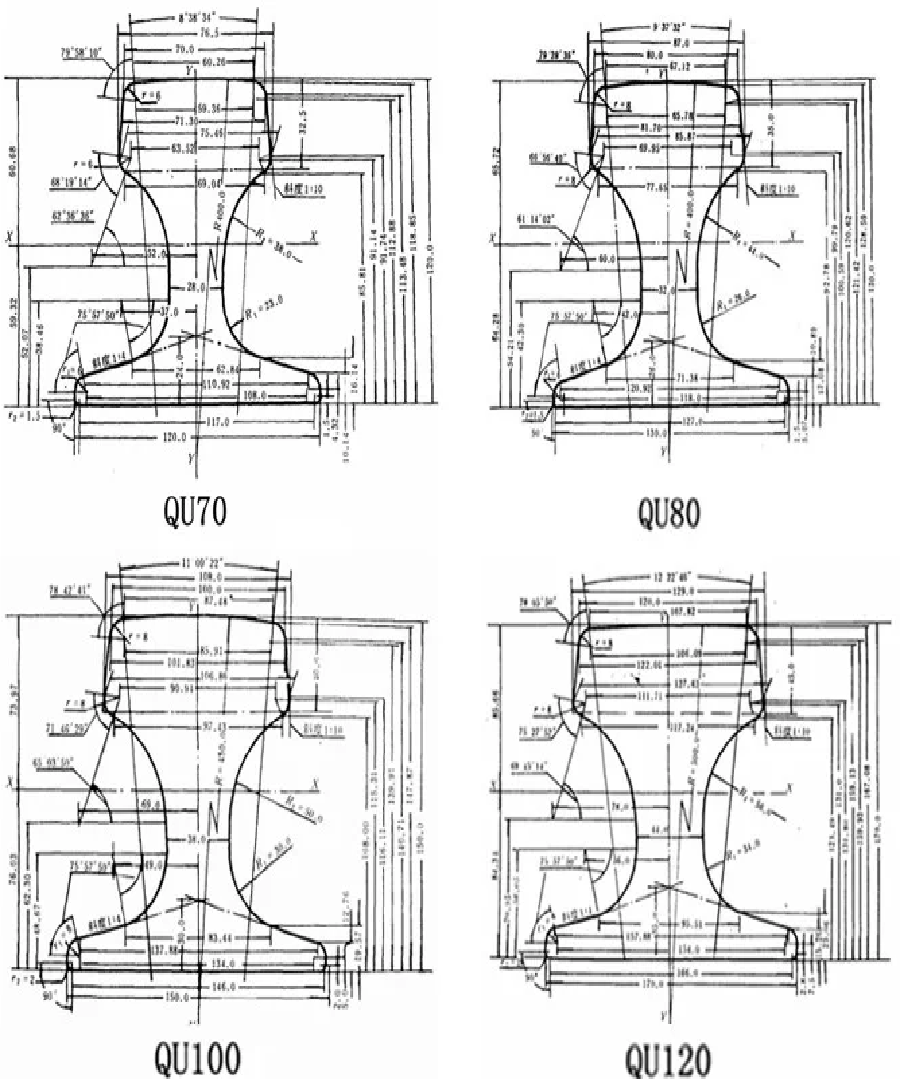
Terene ea Tšepe e Tloaelehileng ea GB:
Litlhaloso: GB6kg, 8kg, GB9kg, GB12, GB15kg, 18kg, GB22kg, 24kg, GB30, P38kg, P43kg, P50kg, P60kg, QU70, QU80, QU100, QU120
Tekanyetso: GB11264-89 GB2585-2007 YB/T5055-93
Thepa: U71Mn/50Mn
Bolelele: 6m-12m 12.5m-25m
| Thepa | Sehlopha | Boholo ba Karolo (mm) | ||||
| Bophahamo ba Terene | Bophara ba Motheo | Bophara ba Hlooho | Botenya | Boima (lik'hilograma) | ||
| Terene e Nyenyane | 8KG/M | 65.00 | 54.00 | 25.00 | 7.00 | 8.42 |
| 12KG/M | 69.85 | 69.85 | 38.10 | 7.54 | 12.2 | |
| 15KG/M | 79.37 | 79.37 | 42.86 | 8.33 | 15.2 | |
| 18KG/M | 90.00 | 80.00 | 40.00 | 10.00 | 18.06 | |
| 22KG/M | 93.66 | 93.66 | 50.80 | 10.72 | 22.3 | |
| 24KG/M | 107.95 | 92.00 | 51.00 | 10.90 | 24.46 | |
| 30KG/M | 107.95 | 107.95 | 60.33 | 12.30 | 30.10 | |
| Terene e Boima | 38KG/M | 134.00 | 114.00 | 68.00 | 13.00 | 38.733 |
| 43KG/M | 140.00 | 114.00 | 70.00 | 14.50 | 44.653 | |
| 50KG/M | 152.00 | 132.00 | 70.00 | 15.50 | 51.514 | |
| 60KG/M | 176.00 | 150.00 | 75.00 | 20.00 | 74.64 | |
| 75KG/M | 192.00 | 150.00 | 75.00 | 20.00 | 74.64 | |
| UIC54 | 159.00 | 140.00 | 70.00 | 16.00 | 54.43 | |
| UIC60 | 172.00 | 150.00 | 74.30 | 16.50 | 60.21 | |
| Terene ea ho Phahamisa | QU70 | 120.00 | 120.00 | 70.00 | 28.00 | 52.80 |
| QU80 | 130.00 | 130.00 | 80.00 | 32.00 | 63.69 | |
| QU100 | 150.00 | 150.00 | 100.00 | 38.00 | 88.96 | |
| QU120 | 170.00 | 170.00 | 120.00 | 44.00 | 118.1 | |
MOLEMO
Teko ea tereneke mokhoa oa teko o sebelisoang ho leka boleng, ts'ebetso le boemo ba terene. Teko ea terene e kenyelletsa haholo-holo lintlha tse latelang:
Tlhahlobo ea ponahalo: Hlahloba hore na ho na le mapetso, mameno, lintho tse kenyellelitsoeng, masoba le liphoso tse ling holim'a seporo, le hore na ho na le karohano, ho tlosoa ha khabone, lintlha tse thata le liphoso tse ling qetellong ea seporo.
Teko ea 'mele le ea lik'hemik'hale: Ka tlhahlobo ea metallographic, tlhahlobo ea thata, tlhahlobo ea lik'hemik'hale le mekhoa e meng ea liteko, ho lemoha sebopeho sa microstructure le lik'hemik'hale tsa seporo, e le ho ahlola boleng ba sona ba ka hare.
Ho lemoha diphoso: Tshebediso ya ultrasound, phofo ya makenete, eddy current le mekgwa e meng ya ho lemoha, tlhahlobo e felletseng kapa ya lehae ya seporo, ho fumana le ho fumana diphoso tsa bokahodimo le tse haufi le bokahodimo.
Ho lemoha matla: Teko ea ho kenya le ho thothomela ha seporo e etsoa ka ho etsisa ho khanna ha koloi, 'me matšoao a ts'ebetso a kang ts'ebetso ea ho kobeha le matla a ho monya tšusumetso ea seporo aa bonoa.
Teko ea ho ikamahanya le tikoloho: Etsisa tikoloho ea tšebeliso tlas'a maemo a fapaneng a tikoloho, joalo ka mocheso o phahameng, mocheso o tlase, khase e senyang, jj., ho leka le ho lekola ts'ebetso ea seporo.
Ka mekhoa ena ea teko, boleng, ts'ebetso le boemo ba terene li ka lekoa ka katleho ho netefatsa polokeho le ts'epo ea eona lipalangoangng tsa terene.
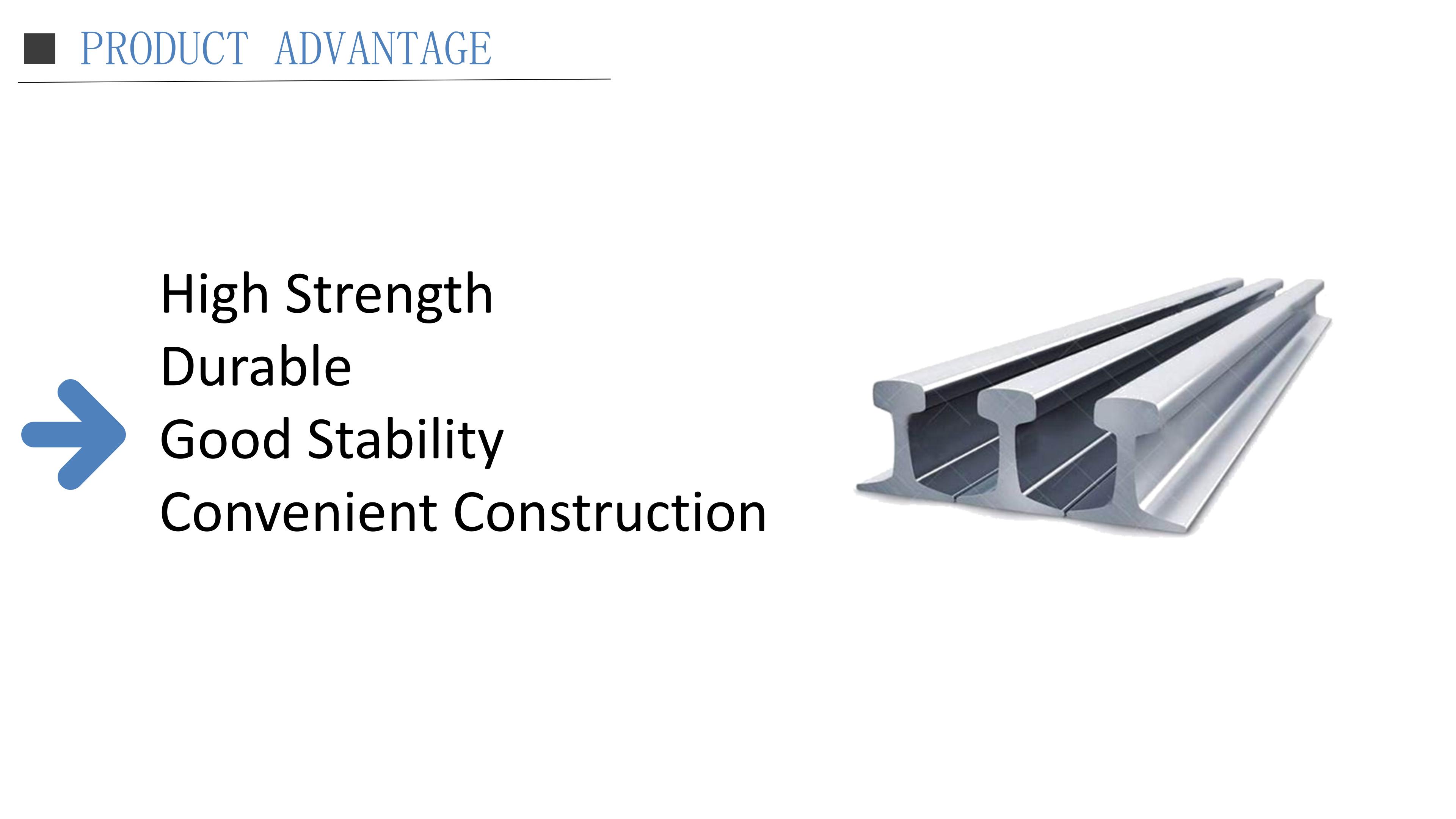
MORERO
Khamphani ea rona'Literene tsa tšepe tse boima ba lithane tse 13,800 tse rometsoeng United States li ile tsa romeloa Koung ea Tianjin ka nako e le 'ngoe. Morero oa kaho o phethiloe ka terene ea ho qetela e ntseng e beoa butle-butle moleng oa terene. Literene tsena kaofela li tsoa moleng oa tlhahiso oa lefats'e oa fektheri ea rona ea literene le mahlakore a tšepe, ho sebelisoa lefats'e ka bophara. E hlahisitsoe ka maemo a holimo le a thata ka ho fetisisa a tekheniki.
Bakeng sa tlhahisoleseling e batsi ka lihlahisoa tsa terene, ka kopo ikopanye le rona!
WeChat: +86 13652091506
Mohala: +86 13652091506
Imeile:[email protected]
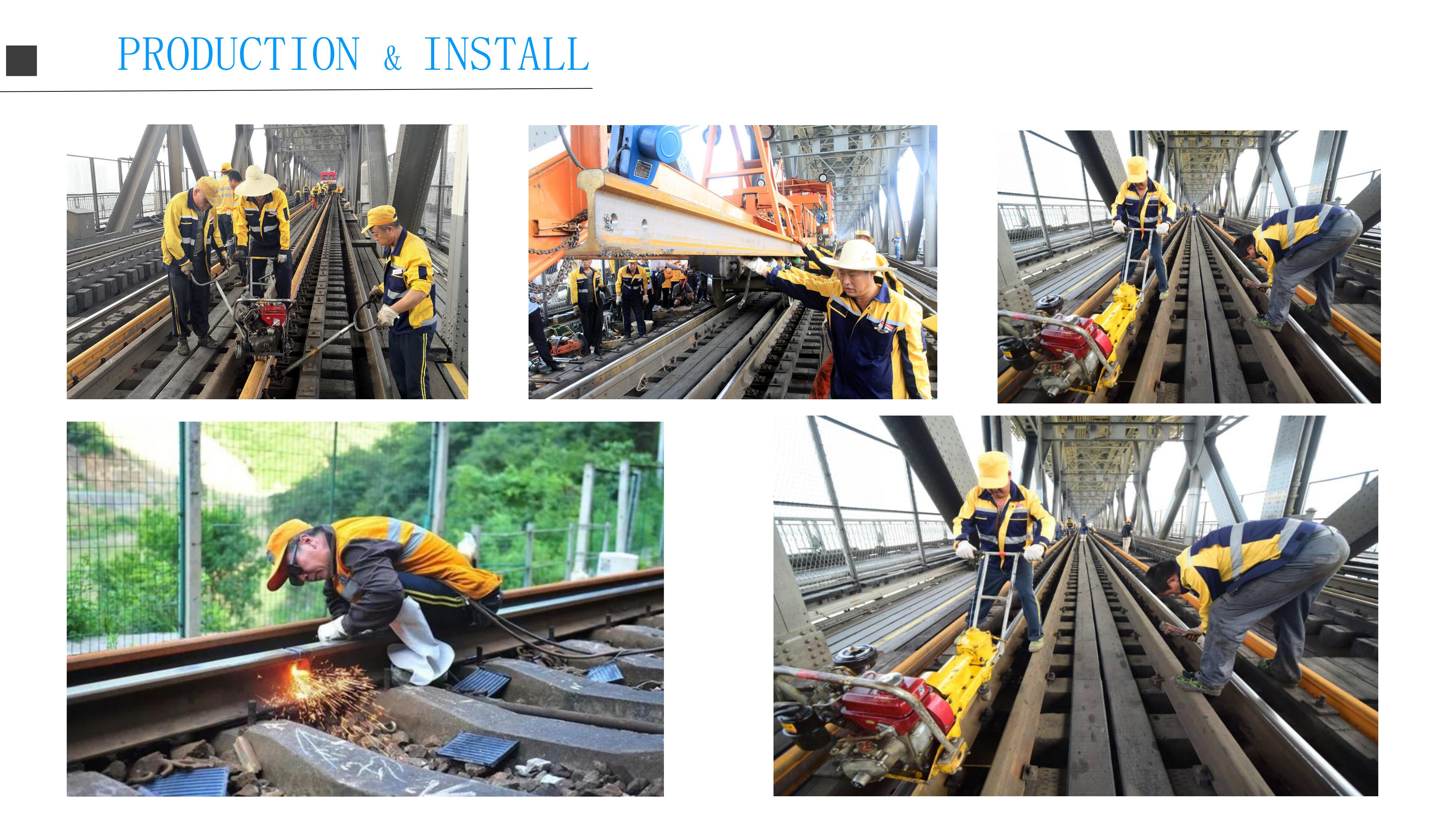
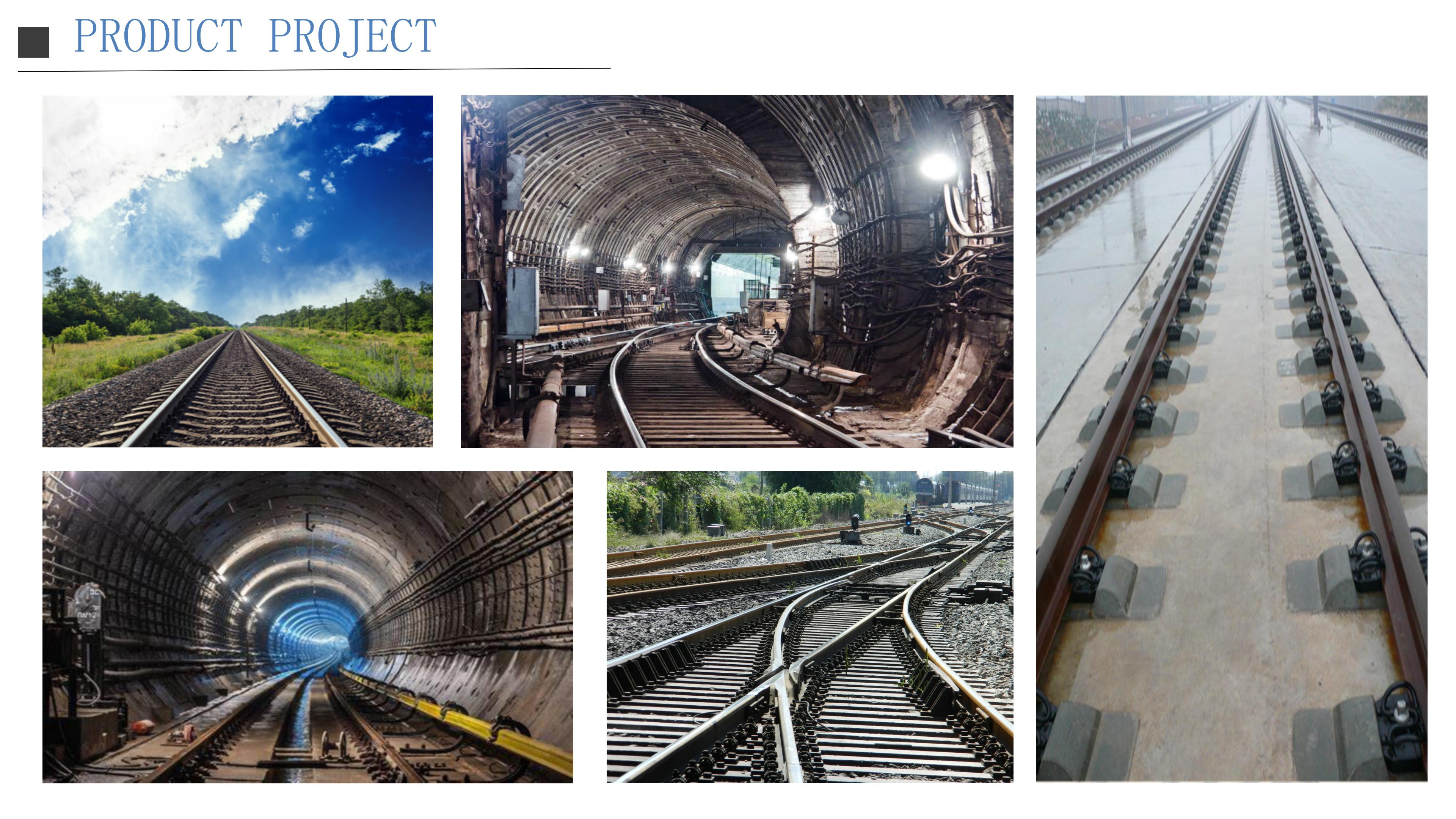
KOPO
Ho na le literene tse boima,literene tse bobebe, le lireile tsa ho phahamisa lireile. Phapang pakeng tsa seporo se boima le seporo se bobebe ke hore boima ka yuniti bolelele ba seporo bo fapane. Lireile tse boima ba ho feta 30kg ka mithara li bitsoa lireile tse boima; lireile tse boima ba ka tlase ho 30kg ka mithara li bitsoa lireile tse bobebe. Ka kakaretso, lireile tse boima li sebelisoa haholo-holo litereneng tsa terene, 'me lireile tsa ho phahamisa li sebelisoa haholo-holo ho phahamiseng li-cuttings.
Terene e bobebe e sebediswa haholoholo bakeng sa ho beha mela ya dipalangwang tsa nakwana le mela e bobebe ya terene dibakeng tsa meru, dibakeng tsa merafo, difeme le dibakeng tsa kaho. Thepa: 55Q/Q235B, maemo a phethahatso: GB11264-89.
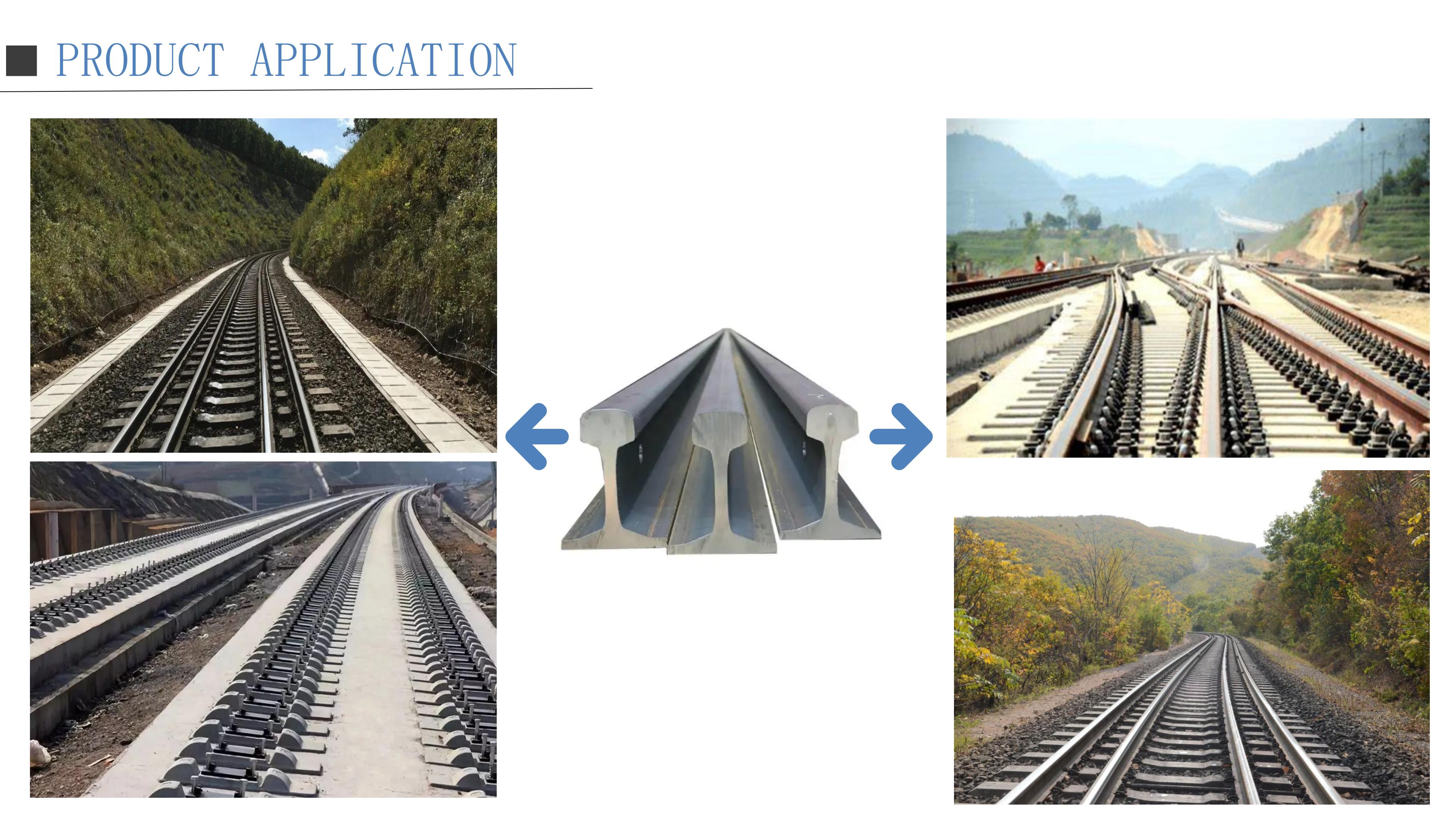
HO PHAKISA LE HO ROMELA
Taba ea pele, linaha li latetse molao-motheo o joalo moralong oa treilara ea hlooho ea seporo: arc ea treilara ea holimo ea seporo e lumellana le boholo ba treilara ea lebili ka hohle kamoo ho ka khonehang, ke hore, boholo ba treilara ea seporo, joalo ka tereilara ea 59.9kg/m United States, arc ea hlooho ea seporo e amoheloa R254-R31.75-R9.52; tereilara ea 65kg/m ea Soviet Union ea mehleng, arc ea hlooho ea seporo e amohela R300-R80-R15; tereilara ea UIC ea 60kg/m, arc ea hlooho ea seporo e amohela R300-R80-R13. Ho ka bonoa ho tsoa ho se boletsoeng ka holimo hore tšobotsi e ka sehloohong ea moralo oa karolo ea tereilara ea sejoale-joale ke tšebeliso ea li-curve tse rarahaneng le li-radii tse tharo. Ka lehlakoreng la tereilara ea hlooho, ho amoheloa mola o otlolohileng o nang le top e moqotetsane le botlaase bo pharaletseng, 'me leralla la mola o otlolohileng ka kakaretso ke 1:20~1:40. Mohala o otlolohileng o nang le leralla le leholo o atisa ho sebelisoa mohlahareng o ka tlase oa hlooho ea seporo, 'me leralla ka kakaretso ke 1:3 ho isa ho 1:4.
Ea bobeli, sebakeng sa phetoho lipakeng tsaterenehlooho le letheka la seporo, e le ho fokotsa mapetso a bakoang ke khatello ea maikutlo le ho eketsa khanyetso ea khohlano pakeng tsa fishplate le seporo, mothinya o rarahaneng o boetse o sebelisoa sebakeng sa phetoho pakeng tsa hlooho ea seporo le letheka la seporo, 'me moralo o moholo oa radius o amoheloa lethekeng. Mohlala, seporo sa UIC sa 60kg/m se sebelisa R7-R35-R120 sebakeng sa phetoho pakeng tsa hlooho ea seporo le letheka. Seporo sa Japane sa 60kg/m se sebelisa R19-R19-R500 sebakeng sa phetoho pakeng tsa hlooho ea seporo le letheka.
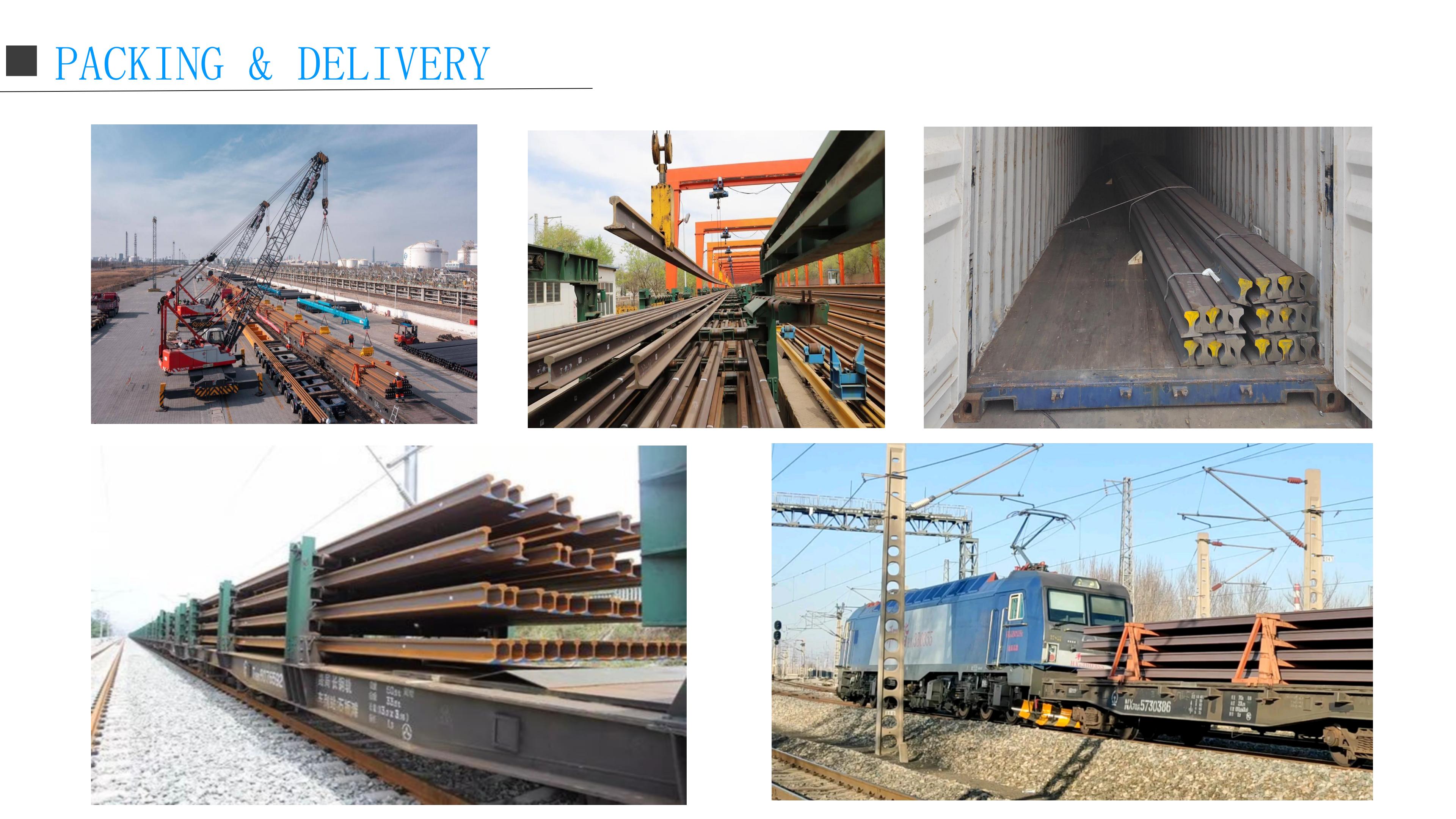
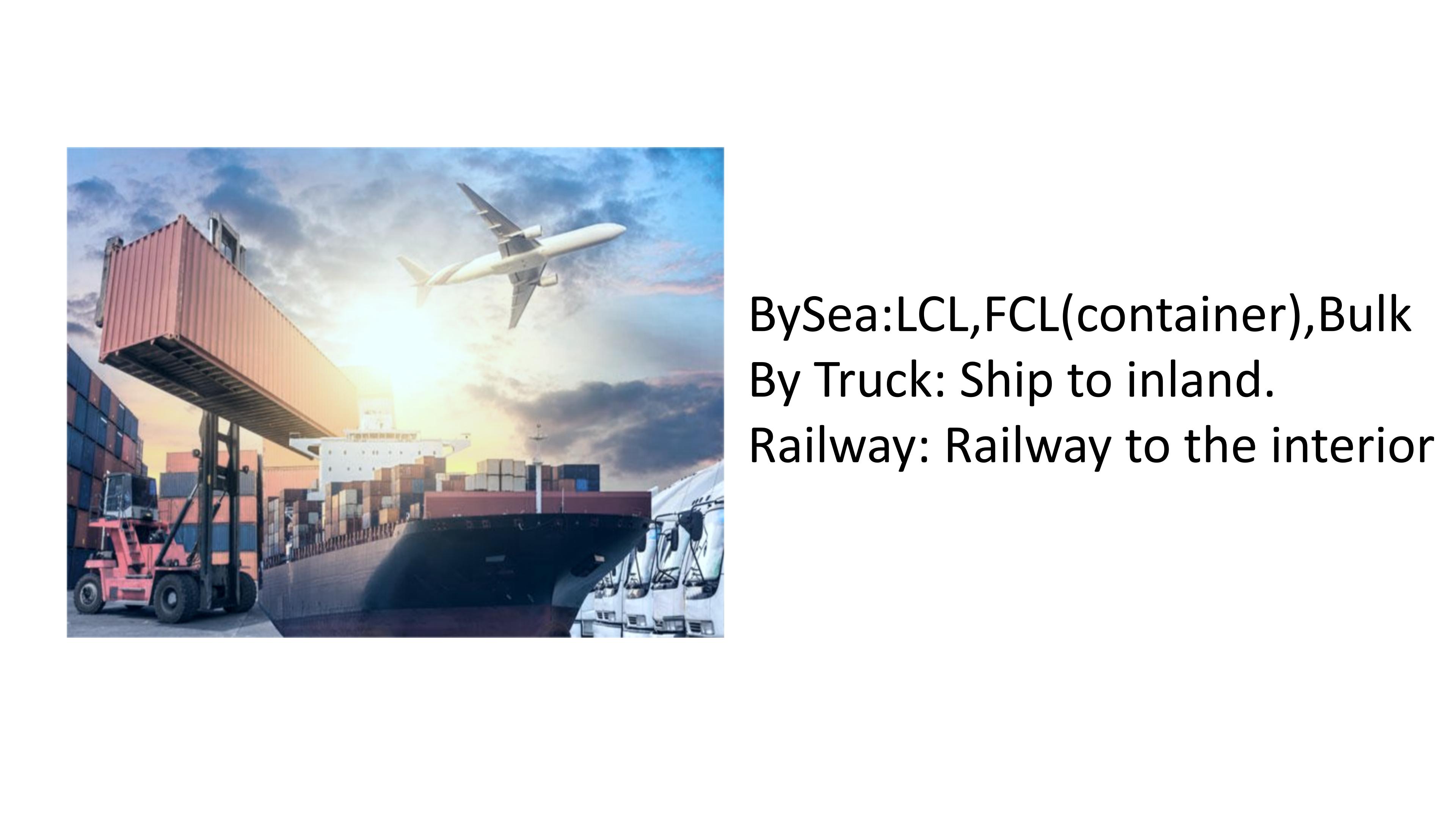
MATLA A K'hamphani
E entsoe Chaena, tšebeletso ea boemo ba pele, boleng bo holimo, e tsebahala lefatšeng ka bophara
1. Phello ea sekala: Khamphani ea rona e na le ketane e kholo ea phepelo le fektheri e kholo ea tšepe, e fihlelang liphello tse kholo lipalangoang le theko, 'me e fetoha k'hamphani ea tšepe e kopanyang tlhahiso le lits'ebeletso.
2. Mefutafuta ya dihlahiswa: Mefutafuta ya dihlahiswa, tshepe efe kapa efe eo o e batlang e ka rekwa ho rona, haholo-holo e sebetsanang le meaho ya tshepe, di-rails tsa tshepe, di-sheet pile tsa tshepe, di-bracket tsa photovoltaic, tshepe ya kanale, di-coil tsa tshepe tsa silicon le dihlahiswa tse ding, e leng se etsang hore e tenyetsehe haholoanyane. Khetha mofuta wa sehlahiswa o lakatsehang ho fihlela ditlhoko tse fapaneng.
3. Phepelo e tsitsitseng: Ho ba le mohala o tsitsitseng oa tlhahiso le ketane ea phepelo ho ka fana ka phepelo e tšepahalang haholoanyane. Sena se bohlokoa haholo ho bareki ba hlokang tšepe e ngata.
4. Tšusumetso ea lets'oao: E na le tšusumetso e phahameng ea lets'oao le 'maraka o moholo
5. Tšebeletso: Khamphani e kholo ea tšepe e kopanyang mokhoa oa ho iketsetsa, lipalangoang le tlhahiso
6. Tlholisano ea theko: theko e utloahalang
*Romella imeile ho[email protected]ho fumana khotheishene bakeng sa merero ea hau
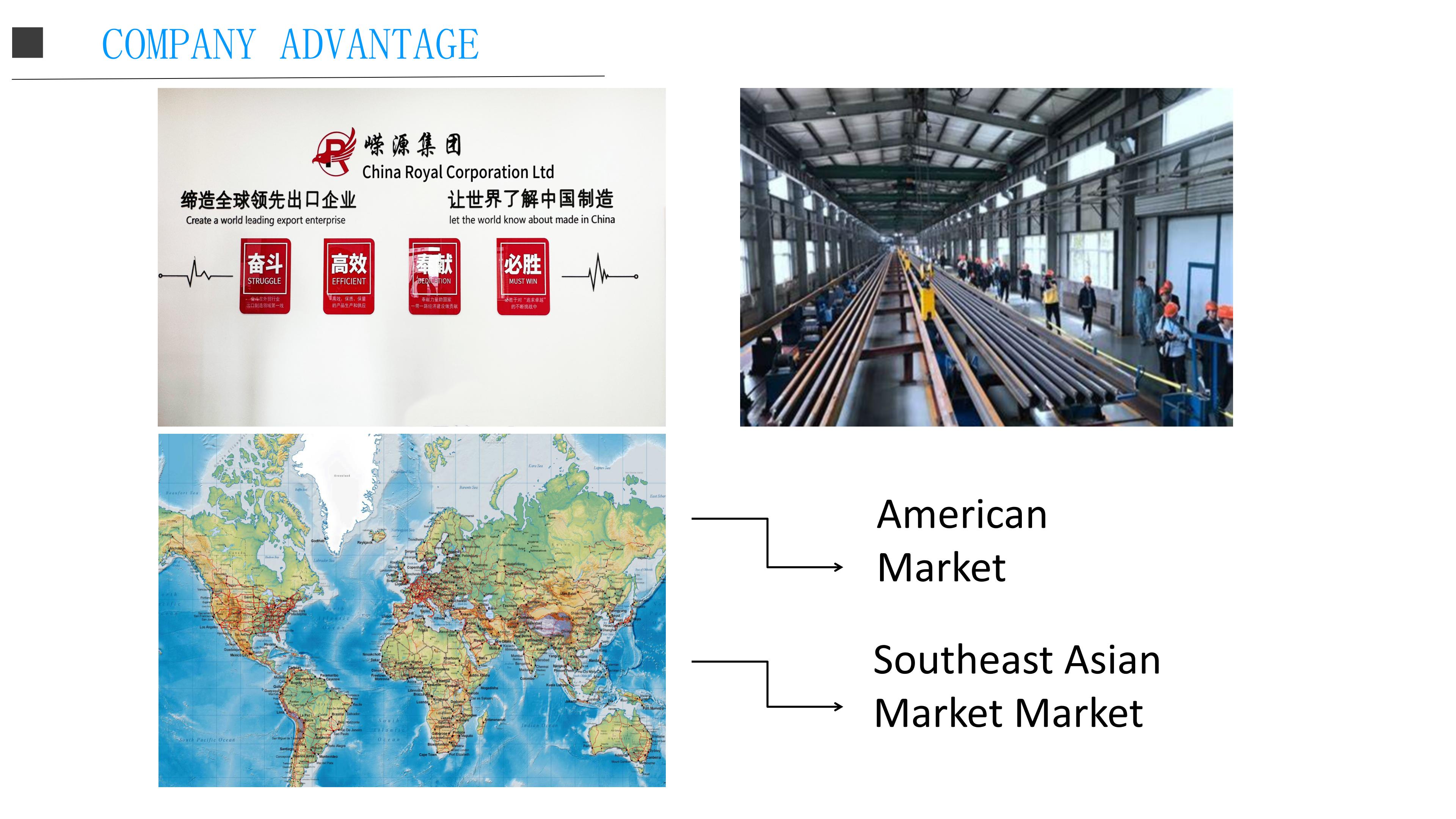
KETO EA BAREKI
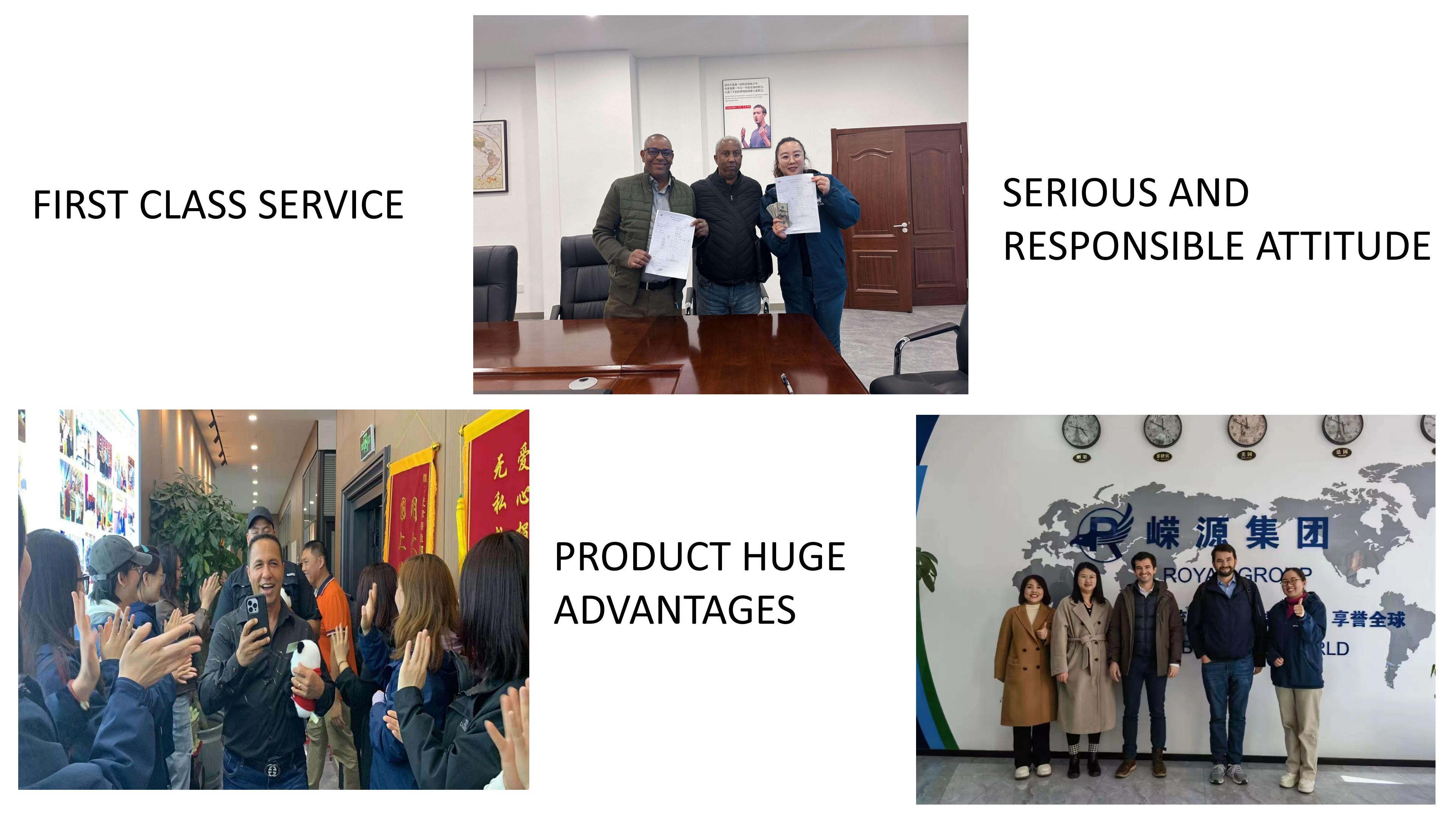
LBH
1. Nka fumana khotheishene joang ho tsoa ho uena?
O ka re siela molaetsa, 'me re tla araba molaetsa o mong le o mong ka nako.
2. Na o tla isa thepa ka nako?
E, re tšepisa ho fana ka lihlahisoa tsa boleng bo holimo le ho li tlisa ka nako. Botšepehi ke molao-motheo oa k'hamphani ea rona.
3.Na nka fumana disampole pele ke odara?
E, ehlile. Hangata disampole tsa rona ha di lefellwe, re ka di hlahisa ka disampole tsa hao kapa ka ditshwantsho tsa botekgeniki.
4. Lipehelo tsa hau tsa tefo ke life?
Nako ea rona ea tefo e tloaelehileng ke depositi ea 30%, 'me karolo e setseng khahlanong le B/L. EXW, FOB, CFR, CIF.
5. Na o amohela tlhahlobo ea motho oa boraro?
E, ruri rea amohela.
6. Re tšepa khamphani ea hau joang?
Re ikhethile khoebong ea tšepe ka lilemo tse ngata re le mofani oa khauta, ntlo-kholo e profinseng ea Tianjin, re amohelehile ho etsa lipatlisiso ka litsela life kapa life, ka mekhoa eohle.


